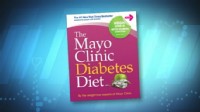Drinking one sugar-sweetened beverage a day could increase a man's heart disease risk, a new study found.
By CARRIE GANN (@carrie_gann) and Dr. LARRY BORGES, ABC News Medical Unit
March 12, 2012
The evidence linking sugar-sweetened beverages with an array of health problems -- including obesity and diabetes -- keeps piling up. And a new study adds one more potential risk to the list: coronary heart disease.
According to a new study, men who drink one sugar-sweetened beverage daily have a 20 percent higher risk of coronary heart disease than men who drink none.
Researchers from the Harvard School of Public Health tracked nearly 43,000 participants in the Health Professionals Follow-Up Study, which included male dentists, pharmacists, physicians, veterinarians and other health professionals ages 40 to 75, almost all of whom were of European descent.
For 22 years, the men filled out surveys about their diets and other health habits. The researchers also collected blood samples from more than 18,000 men who were demographically similar to those in the survey.
The Diabetes Diet Watch Video
Soft Drinks, Fat People Watch Video
Red Meat Can Take Years Off Your Life Watch Video
The results, published today in the American Heart Association's journal, Circulation, found that drinking 12 ounces of regular soda, fruit drinks and other sugar-sweetened beverages daily was associated with a higher risk of heart disease, even after taking into account other cardiovascular risk factors, such as smoking, physical inactivity, alcohol use and a family history of heart disease.
Dr. Frank Hu, a professor of nutrition and epidemiology at the Harvard School of Public Health and the lead author of the study, said the findings were notable because even relatively modest consumption of sugary beverages – just one drink per day – was associated with an increased risk of heart disease.
"These drinks should be treated as a treat, not for all the time," Hu said.
Sugar-sweetened beverages include regular soda, fruit drinks, sports drinks, energy drinks and sugar-sweetened water.
A 2011 report from the U.S Centers for Disease Control and Prevention found that about 25 percent of Americans drink the equivalent of more than one can of soda each day. The study also found that men who drank daily sugar-sweetened beverages had certain markers of cardiovascular disease in their blood, including higher levels of lipids like triglycerides and lower levels of HDL, or "good," cholesterol.
Hu said increases in these markers could give some clues about the biological mechanisms that may connect sugary drinks and heart disease.
Previous research suggests that the link between sugary drinks and heart disease may exist for women as well. The current study's findings mirror those of a study of nearly 89,000 women, the Nurses' Health Study, which Hu and his colleagues published in 2009. That study found that women who drank one or less than two sugary drinks per day had a 23 percent increased risk of a heart attack.
The current study didn't find an association between diet drinks and cardiovascular disease, and previous studies have failed to link diet drinks with an increase in diabetes risk or weight gain. This may be because people who choose diet drinks might be more likely to develop better diets and healthier lifestyles overall. In the current study, the men who drank diet soda often got more exercise and smoked less.
But some nutrition experts hesitate to suggest that people simply replace sugar-sweetened beverages with diet drinks because of inconclusive evidence about the long-term effects of artificial sweeteners. Some research also suggests that diet soda can condition the taste buds to crave sweets, leading to higher sugar intake in other parts of the diet.
A growing body of research connects sugary drinks with increased risk ofdiabetes, weight gain, high blood pressure and a number of other chronic diseases. But nutrition experts note that the current study doesn't show that sugar-sweetened beverages cause heart disease. Consuming sugary drinks every day may simply indicate less healthy lifestyles that could lead to heart disease.
"To some extent, people who drink more soda are apt to eat less well overall," said Dr. David Katz, director of the Yale Prevention Research Center. "Too much added sugar in the diet is likely a 'marker' of lower overall diet quality."
Nutrition experts emphasize that making any single ingredient out as the bad guy is a mistake.
"Attempting to blame or pinpoint any one cause for disease risk or overweight, fails to recognize that overall lifestyle is the key to health," said Connie Diekman, director of university nutrition at Washington University in St. Louis.
The American Beverage Association, a trade organization representing the beverage industry, disputed the study's findings.
"Drinking sweetened beverages does not cause an increased risk of heart disease – not based on this study or any other study in the available science," the ABA said in a statement, adding that a healthy weight, balanced diet and physical activity are the real keys to reducing the risk of heart disease.





No comments:
Post a Comment